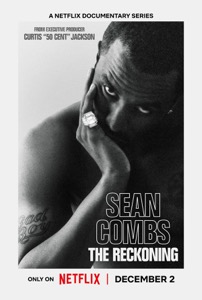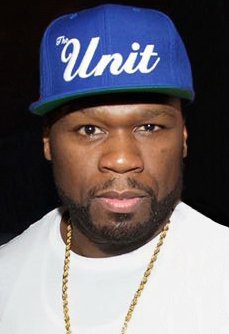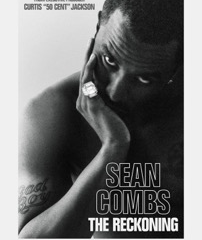Entertainment
Houston Comedy Film Festival Celebrates ‘The Lost Treasure of J.J. Abrams’ as Best Mockumentary Winner

In a moment that left audiences in stitches and applause echoing through the theater, “The Lost Treasure of J.J. Abrams” emerged victorious at the prestigious Houston Comedy Film Festival. The mockumentary, which took viewers on a hilariously absurd journey, earned the coveted title of Best Mockumentary at this esteemed event.
A Victory Worth Celebrating
Max Darwin and Christine Cox, the dynamic duo behind “The Lost Treasure of J.J. Abrams,” could hardly contain their excitement as they took the stage to accept the award. The Houston Comedy Film Festival provided the perfect platform to showcase their comedic genius and celebrate their mockumentary’s success.
The Winning Mockumentary
“The Lost Treasure of J.J. Abrams” follows the adventures of Jeff, a self-proclaimed expert on the TV show LOST, as he embarks on a journey to Hawaii in pursuit of an item he believes the cast and crew intentionally left behind. The film expertly combines humor, satire, and a touch of absurdity, making it a standout in the mockumentary genre.
An Interview with Max Darwin
Following the award ceremony, we had the pleasure of speaking with Max Darwin, one of the creators and stars of the film. His enthusiasm was palpable as he shared his thoughts on the film’s success.
“It’s truly an honor to have ‘The Lost Treasure of J.J. Abrams’ recognized as the Best Mockumentary at the Houston Comedy Film Festival,” Max Darwin exclaimed. “This project was a labor of love, and it’s incredibly rewarding to see our hard work pay off.”
Max went on to discuss the film’s inspiration and the creative journey they embarked on. “When we pitched the idea of a mockumentary set in Hawaii inspired by Akira Kurosawa’s ‘Dersu Uzala,’ it felt both absurd and endearing. We wanted to take a far-fetched concept and take it seriously, blending humor with a deeper theme of human aspiration against the backdrop of nature.”
A Journey to Remember
“The Lost Treasure of J.J. Abrams” was shot entirely on Oahu, Hawaii, with a local Hawaiian cast. The film aimed to showcase the island’s natural beauty and the spirit of “malama aina,” the Hawaiian concept of caring for the land. Director Alex Farnham, a local Hawaiian filmmaker, played a pivotal role in bringing this  vision to life.
vision to life.
What’s Next for Max Darwin and Christine Cox?
As Max Darwin shared during the interview, this award-winning mockumentary is just the beginning. “We have a passion for creating engaging and comedic content that resonates with audiences. Our journey doesn’t stop here, and we can’t wait to bring more laughter to the world.”
A Legacy of Laughter
“The Lost Treasure of J.J. Abrams” has left an indelible mark on the comedy genre, and its victory at the Houston Comedy Film Festival cements its place in the annals of comedic excellence. As we celebrate this mockumentary’s success, we eagerly anticipate what Max Darwin, Christine Cox, and their creative team will deliver next.
Stay tuned for more updates on their journey and future projects, because when Max Darwin and Christine Cox are involved, laughter is guaranteed!
For media and marketing inquiries, please contact Bolanle Media at info@bolanlemedia.com or visit www.bolanlemedia.com.
Follow Bolanle Media on social media: instagram.com/bolanlemedia and YouTube.com/@bolanlemedia
Entertainment
What We Can Learn Inside 50 Cent’s Explosive Diddy Documentary: 5 Reasons You Should Watch

50 Cent’s new Netflix docuseries about Sean “Diddy” Combs is more than a headline-grabbing exposé; it is a meticulous breakdown of how power, celebrity, and silence can collide in the entertainment industry.
Across its episodes, the series traces Diddy’s rise, the allegations that followed him for years, and the shocking footage and testimonies now forcing a wider cultural reckoning.

1. It Chronicles Diddy’s Rise and Fall – And How Power Warps Reality
The docuseries follows Combs from hitmaker and business icon to a figure facing serious criminal conviction and public disgrace, mapping out decades of influence, branding, and behind-the-scenes behavior. Watching that arc shows how money, fame, and industry relationships can shield someone from scrutiny and delay accountability, even as disturbing accusations accumulate.

2. Never-Before-Seen Footage Shows How Narratives Are Managed
Exclusive footage of Diddy in private settings and in the tense days around his legal troubles reveals how carefully celebrity narratives are shaped, even in crisis.
Viewers can learn to question polished statements and recognize that what looks spontaneous in public is often the result of strategy, damage control, and legal calculation.
3. Survivors’ Stories Highlight Patterns of Abuse and Silence
Interviews with alleged victims, former staff, and industry insiders describe patterns of control, fear, and emotional or physical harm that were long whispered about but rarely aired in this detail. Their stories underline how difficult it is to speak out against a powerful figure, teaching viewers why many survivors delay disclosure and why consistent patterns across multiple accounts matter.
4. 50 Cent’s Approach Shows Storytelling as a Tool for Accountability
As executive producer, 50 Cent uses his reputation and platform to push a project that leans into uncomfortable truths rather than protecting industry relationships. The series demonstrates how documentary storytelling can challenge established power structures, elevate marginalized voices, and pressure institutions to respond when traditional systems have failed.
5. The Cultural Backlash Reveals How Society Handles Celebrity Accountability
Reactions to the doc—ranging from people calling it necessary and brave to others dismissing it as a vendetta or smear campaign—expose how emotionally invested audiences can be in defending or condemning a famous figure. Watching that debate unfold helps viewers see how fandom, nostalgia, and bias influence who is believed, and why conversations about “cancel culture” often mask deeper questions about justice and who is considered too powerful to fall.
Entertainment
South Park’s Christmas Episode Delivers the Antichrist

A new Christmas-themed episode of South Park is scheduled to air with a central plot in which Satan is depicted as preparing for the birth of an Antichrist figure. The premise extends a season-long narrative arc that has involved Satan, Donald Trump, and apocalyptic rhetoric, positioning this holiday episode as a culmination of those storylines rather than a stand‑alone concept.
Episode premise and season context
According to published synopses and entertainment coverage, the episode frames the Antichrist as part of a fictional storyline that blends religious symbolism with commentary on politics, media, and cultural fear. This follows earlier Season 28 episodes that introduced ideas about Trump fathering an Antichrist child and tech billionaire Peter Thiel obsessing over prophecy and end‑times narratives. The Christmas setting is presented as a contrast to the darker themes, reflecting the series’ pattern of pairing holiday imagery with controversial subject matter.
Public and political reactions
Coverage notes that some figures connected to Donald Trump’s political orbit have criticized the season’s portrayal of Trump and his allies, describing the show as relying on shock tactics rather than substantive critique. Commentators highlight that these objections are directed more at the depiction of real political figures and the show’s tone than at the specific theology of the Antichrist storyline.
At the time of reporting, there have not been widely reported, detailed statements from major religious leaders focused solely on this Christmas episode, though religion-focused criticism of South Park in general has a long history.
Media and cultural commentary
Entertainment outlets such as The Hollywood Reporter, Entertainment Weekly, Forbes, Slate, and USA Today describe the Antichrist arc as part of South Park’s ongoing use of Trump-era and tech-world politics as material for satire.
Viewer guidance and content advisory
South Park is rated TV‑MA and is intended for adult audiences due to strong language, explicit themes, and frequent use of religious and political satire. Viewers who are sensitive to depictions of Satan, the Antichrist, or parodies involving real political figures may find this episode particularly objectionable, while others may view it as consistent with the show’s long‑running approach to controversial topics. As with previous episodes, individual responses are likely to vary widely, and the episode is best understood as part of an ongoing satirical series rather than a factual or theological statement.
Entertainment
Sydney Sweeney Finally Confronts the Plastic Surgery Rumors

Sydney Sweeney has decided she is finished watching strangers on the internet treat her face like a forensic project. After years of side‑by‑side screenshots, “then vs now” TikToks, and long comment threads wondering what work she has supposedly had done, the actor is now addressing the plastic surgery rumors directly—and using them to say something larger about how women are looked at in Hollywood and online.

Growing Up on Camera vs. “Before and After” Culture
Sweeney points out that people are often mistaking normal changes for procedures: she grew up on camera, her roles now come with big‑budget glam teams, and her body has shifted as she has trained, aged, and worked nonstop. Yet every new red‑carpet photo gets folded into a narrative that assumes surgeons, not time, are responsible. Rather than walking through a checklist of what is “real,” she emphasizes how bizarre it is that internet detectives comb through pores, noses, and jawlines as if they are owed an explanation for every contour of a woman’s face.
The Real Problem Isn’t Her Face
By speaking up, Sweeney is redirecting the conversation away from her features and toward the culture that obsesses over them.
She argues that the real issue isn’t whether an actress has had work done, but why audiences feel so entitled to dissect her body as public property in the first place.
For her, the constant speculation is less about curiosity and more about control—another way to tell women what they should look like and punish them when they do not fit. In calling out that dynamic, Sweeney isn’t just defending herself; she is forcing fans and followers to ask why tearing apart someone else’s appearance has become such a popular form of entertainment.























Gluco Slim Gummies Supplement Side Effects
February 27, 2024 at 2:11 pm
Pretty! This has been a really wonderful post. Many thanks for providing these details.